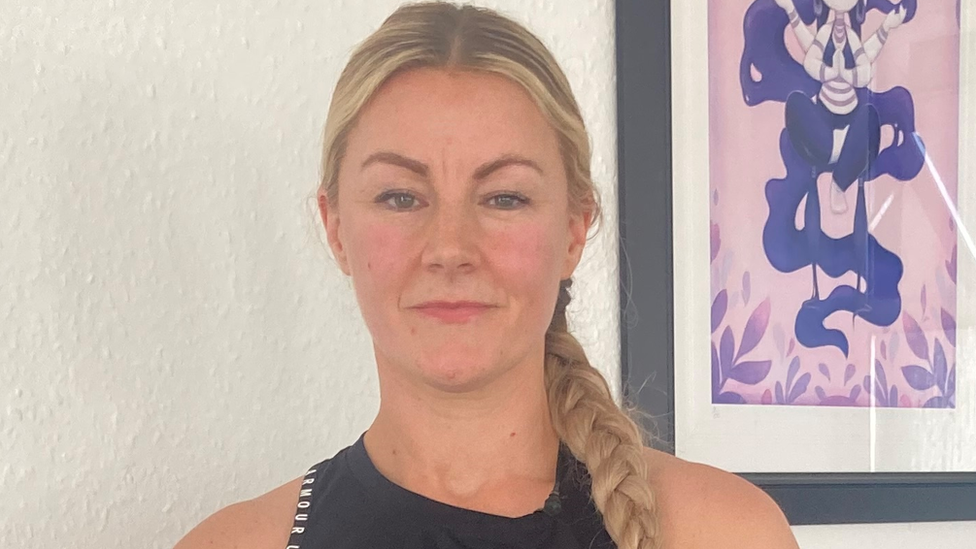Smear tests: Women speak out as 17,500 smears to be re-checked
- Published
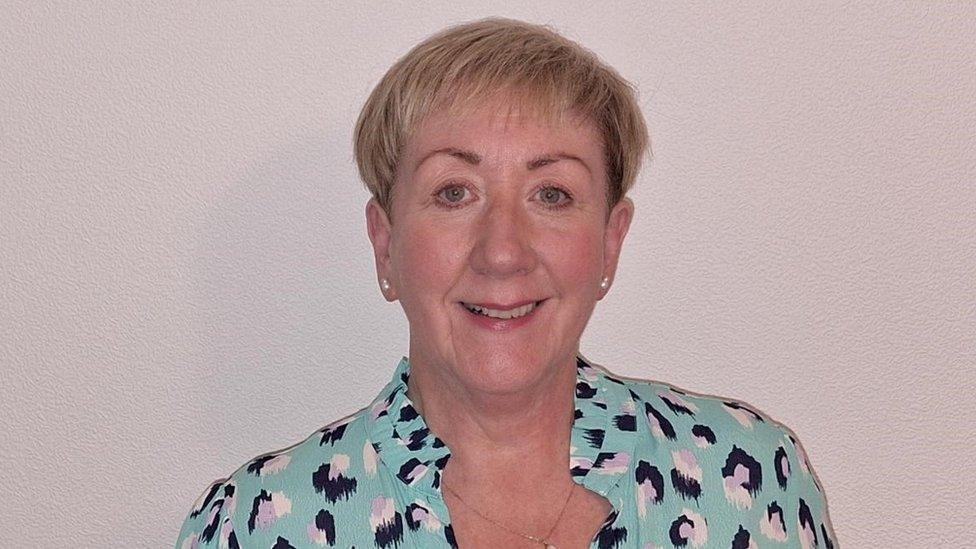
Heather Thompson says more needs to be done for worried women
Women affected by a review of cervical smears in the Southern Health Trust have said they are "angry, frustrated and scared" for their future.
About 17,500 patients in the trust are to have their previous smears re-checked as part of a major review of cervical screening dating back to 2008.
Some of these women will be recalled to have new smear tests carried out.
But the process has not started yet and will take at least six months to complete.
Letters were sent out by the trust earlier this month to those affected.
The Southern Trust says it expects to recall around 4,000 women for a new smear test after it reviews 17,368 historic slides.
The Trust's medical director, Dr Steve Austin, told its board meeting that the review of slides was expected to start next week.
It also emerged that the number of calls from concerned women has increased with many asking for more "specialist" answers.
Among those to receive a letter that their test was affected were Heather Thompson and Brenda Redpath.
Both women found each other on social media after they sought further information and support.
Going private
Brenda and Heather have urged the trust to provide clarity, as well as a new smear test, to all affected patients.
"We have so many unanswered questions, and I think the trust should be holding public meetings from Dungannon to Tandragee to talk to us," Heather said.
The 63-year-old, who has had three smears since 2009, said she had "no faith in the system whatsoever" after the incident and that someone should be held accountable.
Since receiving the letter Heather, who had been due for another smear, said she decided to go private for "peace of mind".
Smear test: Women at the centre of Southern Trust review concerned
In Northern Ireland, there is an approximate six-month wait for a smear test result in the health service.
For private patients, it is around three weeks.
Both women are in contact with around a dozen other people on social media, including a pregnant woman who will be unable to have a smear until months after she gives birth.
The review of smear test results, follows a highly critical report commissioned by the Royal College of Pathologists (RCPath), which found cytology staff were "underperforming", mechanisms to check their work were "flawed" and action taken by management was "inadequate".
The report was initially triggered in February after a woman, who had three abnormal smears missed, described being told she had cervical cancer.
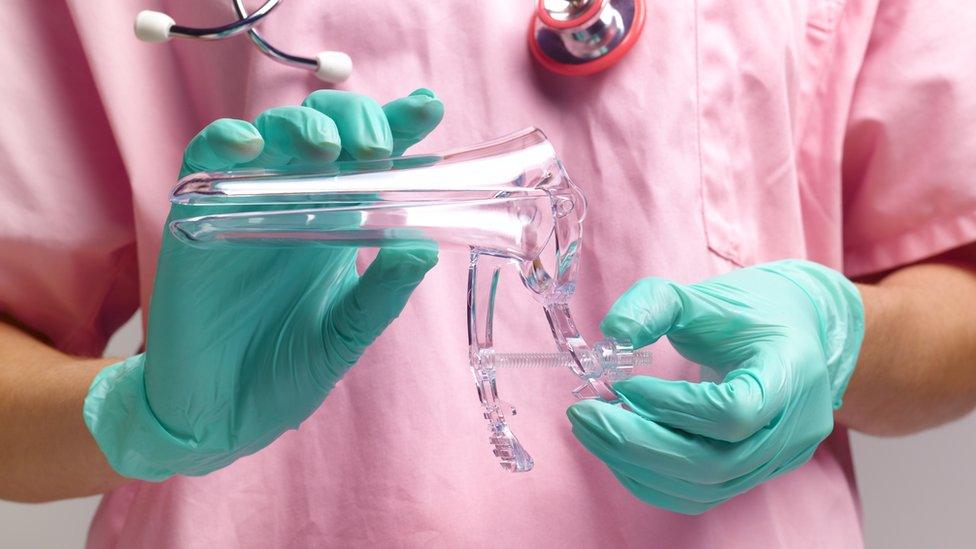
Smear tests check the health of the cervix
Brenda, who is 71, said the Southern Trust should provide women with more detail, including how quickly those found to have abnormal results will be re-tested.
She appealed to all those who received letters to not just put them behind the clock, but to be proactive about their health.

What is cervical screening?
Cervical screening can not detect cancer, but detecting and treating abnormal cells may help prevent cancer. No screening process is 100% accurate.
The screening looks for the human papillomavirus (HPV) which can cause abnormal cells on the cervix. If HPV is detected a cytology test is used to check for any abnormal cells.
Unlike the rest of the UK and Ireland, Northern Ireland does not have the primary HPV screening system in full operation.
In Northern Ireland, the cervical screening process involves two people - a screener and checker analysing slides under a microscope.

At the time, the Department of Health called the report's findings "clearly unacceptable".
In its review, RCPath consulting - which is linked to the Royal College of Pathologists, said that the Southern Trust should "consider" recalling those women most at risk.
Broadly, these women are those who had a negative or inadequate result during the review period and have not had any tests since.
But the report acknowledged that rescreening ( so many women) can't be recommended at this time largely because "capacity for large scale slide review is highly unlikely within the UK given the general state of workload and service delivery".
Despite this the Southern Trust is rescreening the slides of 17,368 women as it believes it is the right course of action to take.
'Significant and complex' review
Dr Steve Austin, medical director at the Southern Trust told the Trust's board meting that the scale of the review was "significant and complex".
For the first time the board was informed that there is a possibility that the slides may have "degraded" which means those will be recalled for a new smear.
The entire process is being overseen by the Department of Health with the Public Health Agency also involved.
Board members said they have been in contact with lots of women who have received letters about the review, and it cannot be emphasised enough the stress and anxiety the review has caused.
They called for assurance that the review is being "expedited" as quickly as possible and asked of more could be done to speed up the process so women can receive answers sooner.
It emerged that the trust is still working out who will be involved in carrying out the smears including using local GPs.
When asked why all 17,368 women cannot be offered a new smear as soon as possible, Dr Austin said that would require 12 clinics operating each day for one year.
He said it was faster to review the slides.
Dr Austin also said that those women who are going private for their smears and who receive an abnormal result should be given access to their previous smears.
Doug Beattie, the Ulster Unionist assembly member for the area, has written to the Department of Health's permanent secretary to ask why all 17,500 women can't be retested again.
"Someone also needs to look into what happened," he said.
"We have some incredibly professional people who work in our health trust, we trust them but when they get it wrong, we need to find out why, so it doesn't happen again."
In a statement the Southern Trust said the letters were "not an indication that these women may have cancer" and it was merely a test to check if there were any abnormalities that could potentially lead to cancer in the future.
It reiterated the chance of pre-cancerous changes in the cervix at any time remained low and nine in ten people have a negative screening result.
"We have written to women whose slides will be reviewed to advise them that they will contacted by letter regarding the outcome... or to invite them for a new smear test.
"It will take a number of months for this work to be completed.
"The task of implementing this review is significant and robust governance arrangements are in place."
Related topics
- Published12 October 2023
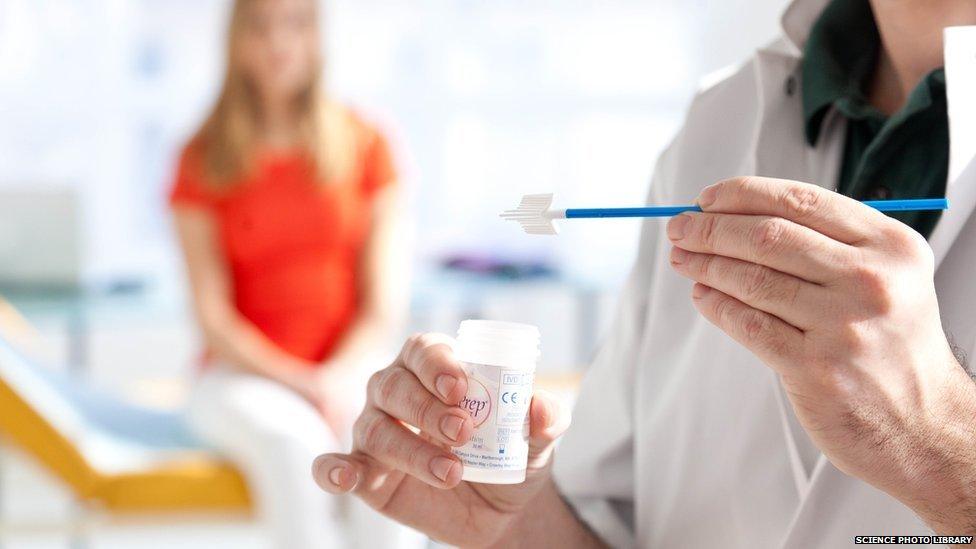
- Published9 October 2023
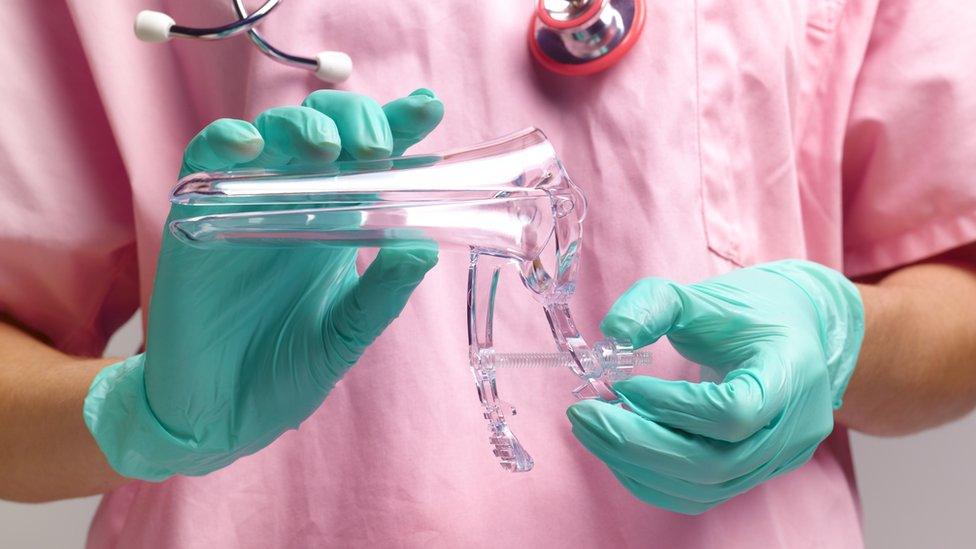
- Published13 September 2023
